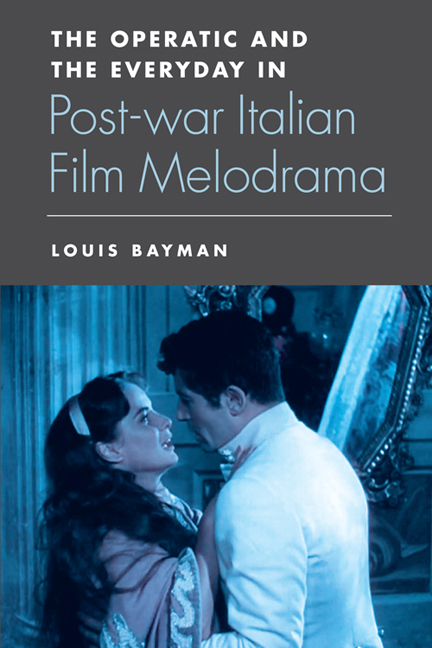Chapter 1
Published online by Cambridge University Press: 05 August 2016
Summary
A principal historical shift was under way in Italian cinema by the end of World War II, which is to say that films in this period took a distinct turn towards the exploration of misfortune. In rediscovering realism and engaging in social analysis, post-war Italian cinema put its dramatic characters through a series of hardships. Alongside such engaged criticism important changes also took place in entertainment. Comedy was found less in material comfort and ever more in states of lucklessness and impoverishment, while crime, adventure, opera and historical films drew energy from the setbacks that befell their often ill-fated protagonists.
A perspective which focuses on Italian cinema's exploration of misfortune invites reconsideration of its film history. A common assertion regarding the development of post-war Italian cinema was that neorealism, the radical turn towards social reality (discussed at length in the following chapter), declined because audiences wanted a rosy picture of life rather than to spend their spare time confronted with misery and suffering. And yet misery and suffering abound in post-war cinema, if anything increasing in intensity as the years of reconstruction began, and maintaining themselves through the concurrent flourishing of the post-war genre system.
I GENRE
As well as entailing a historiographic enterprise regarding film production in post-war Italy, recognition of this broad emphasis on suffering, enabled by freedoms from Fascist pressures towards positivity, invites consideration of the substance of enjoyment; that is, of what constitutes enjoyment and of what makes it substantial. The experiences available in the cultural pursuits of any particular society are evidence of what that society may hold to be of value or significance, and how it shapes common desires and anxieties into dramatic fantasies. The following analysis of melodrama in post-war Italian cinema intends to conduct such inquiries through analysis of the aesthetic and cultural bases of a vital popular form.
Industrial popularity
In 1949, a demonstration of the Movimento per la Difesa del Cinema Italiano marched through Rome under the slogan of protecting ‘Our art, our culture, our work’. This claim of the comprehensive role of film in post-war Italy seems well founded. Italy's Economic Miracle was not to occur until the late 1950s, but, perhaps indicating the primacy of entertainment during hardship, a sectional miracle presaged it: the blossoming of the film industry from the ‘organised chaos’ (Wood 2005: 12) of the first post-war years.
- Type
- Chapter
- Information
- Publisher: Edinburgh University PressPrint publication year: 2014



